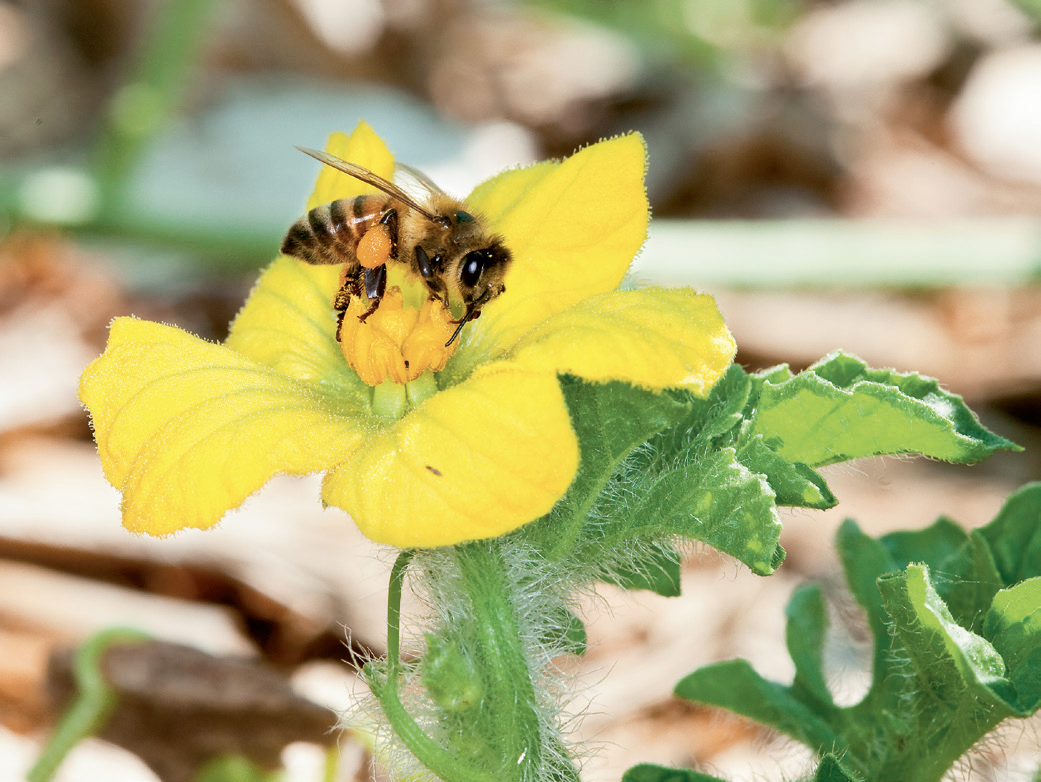
Apr 13, 2021
Walmart debuts bee-friendly policy
Retail giant Walmart on April 13 rolled out a “pollinator health policy” warning its suppliers off of some major pesticides.
Martin Mundo, who’s senior vice president and general merchandise manager for Walmart U.S.’ produce and global produce sourcing, wrote about the policy online:
“One of the contributors to pollinator decline is the use of pesticides. Pollinator exposure to pesticides can be reduced by minimizing the use of pesticides, incorporating alternative forms of pest control and adopting a range of specific application practices through an Integrated Pest Management system. Therefore, Walmart U.S. is committing to source 100% of the fresh produce and floral we sell in our in-store produce department from suppliers that adopt IPM practices, as verified by a third party, by 2025 (see full list of third-party certifications on Walmart’s Sustainability Hub).
“We are also encouraging fresh produce suppliers to phase out use of chlorpyrifos and nitroguanidine neonicotinoids pesticides (where applicable unless mandated otherwise by law), avoid replacing them with other products with a level I bee precaution rating and assess and report annual progress.”
Washington, D.C.-based nonprofit group Friends of the Earth, which advocates for environmental policy, described Walmart’s announcement as a policy win.
Walmart’s policy recognizes that organic agriculture is protective of pollinator health, the group wrote in a news release. Organic agriculture is based on robust IPM practices, and organic certification prohibits the use of over 900 pesticides, including those of highest concern for the health of pollinators and people, such as chlorpyrifos and neonicotinoids. Research shows that organic farming can help reverse pollinator declines, the group added.
“Scientists across the world are sounding the alarm that we are in the midst of an ‘insect apocalypse,’ driven in large part by toxic pesticides,” Kendra Klein, PhD, senior staff scientist at Friends of the Earth wrote in the news release. “Walmart’s policy is a major step in the right direction, but with 40% of insect pollinators facing extinction, all retailers must accelerate a race to the top before pollinators lose their race against time.”
Above, a honeybee, with pollen attached to its hind leg, pollinating a watermelon flower. Photo: Stephen Ausmus/USDA ARS






